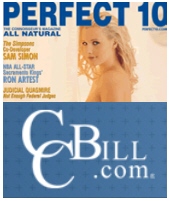Another expansion of CDA immunity, as court holds online service providers are immune from state law-based intellectual property claims arising from content provided by third parties.
Perfect 10 v. CCBill, — F.3d —- (9th Cir. March 29, 2007)
Nearly three years after a significant district court opinion [340 F.Supp.2d 1077 (C.D. Cal. 2004)] examining the contours of DMCA safe harbor provisions and immunity under 47 U.S.C. 230, the Ninth Circuit has ruled in the appeal of Perfect 10 v. CCBill. This is a significant decision. Joe Gratz has posted a copy of the opinion.
One aspect of the opinion that is immediatley striking is the Ninth Circuit’s interpretation of 47 U.S.C. 230(e)(2). This provision requires the court to “construe Section 230(c)(1) (one of the immunity provisions) in a manner that would neither ‘limit [n]or expand any law pertaining to intellectual property.'” Gucci Am., Inc. v. Hall & Assocs., 135 F. Supp. 2d 409, 413 (S.D.N.Y. 2001).
Perfect 10 had brought a number of state law claims that arguably sounded in intellectual property, like unfair competition, false advertising and violations of the right of publicity. The district court held that the unfair competition and false advertising claims were not intellectual property claims, so the immunity was not limited by Section 230(e). But the lower court held that the right of publicity claim was one properly classified as intellectual property, so as for that, there was no immunity.
In this decision the Ninth Circuit made a bold leap to define “intellectual property” as it is used in Section 230. (You may recall this was almost an issue last year in the case of Almeida v. Amazon.com, Inc.)
Here’s the heart of the Ninth Circuit’s opinion on this point:
Because material on a website may be viewed across the Internet, and thus in more than one state at a time, permitting the reach of any particular state’s definition of intellectual property to dictate the contours of this federal immunity would be contrary to Congress’s expressed goal of insulating the development of the Internet from the various state-law regimes. *** In the absence of a definition from Congress, we construe the term “intellectual property” to mean “federal intellectual property.”
Accordingly, the Ninth Circuit reversed the district court’s holding that the claim for violation of the right of publicity was not barred by Section 230 immunity. So as the law stands now, at least in the Ninth Circuit, providers of interactive computer services are immune from suit under state-law intellectual property claims arising from content provided by third parties.


